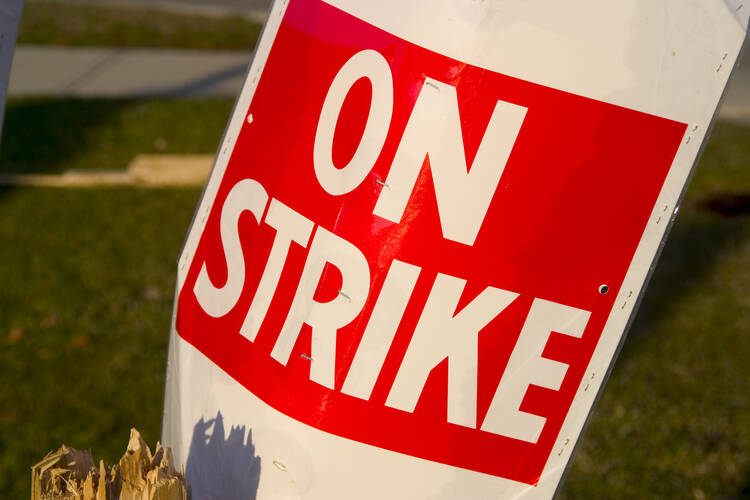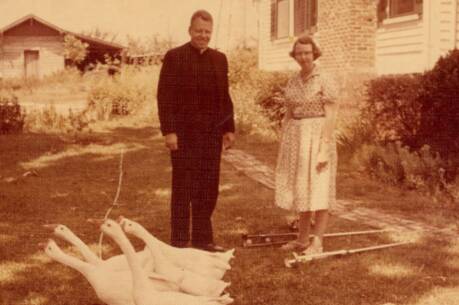The Catholic Movie Club is a short weekly essay pulling out spiritual themes in our favorite films. You can discuss the movies with other readers in the comments on this page or in our Facebook group. Find past Catholic Movie Club selections here.
Which side are you on?
I bristle a little when I hear that question. In our age of hyperpolarization, I find myself suspicious of any “us versus them” mentality. But if I really believe the things I say that I believe, then there are times when I—we—have to take a stand. There are some conflicts so urgent, we must take a side.
“Harlan County, USA” is an incredible piece of documentary filmmaking because it’s also an amazing portrait of courage and solidarity.
“Harlan County, USA,” Barbara Kopple’s 1976 documentary about a coal miners’ strike in southeast Kentucky, is about one of those conflicts. On one side: the miners, men whose families have worked under the earth for generations, their lungs desiccated from inhaling coal dust, their bodies broken and burned in mine collapses and explosions, their children growing up in ramshackle company towns until they’re old enough to strap on a miner’s cap themselves. On the other: the mining companies, slick men in slick suits who rake in a single year profit increase of 170 percent while only raising their workers’ pay by 4 percent. They never get near the picket lines themselves, of course; instead they pay other working men to harass the strikers with threats, drawn weapons and outright violence.
One side is fighting to retain profits. The other is fighting for their lives.
“Harlan County, USA” is an incredible piece of documentary filmmaking because it’s also an amazing portrait of courage and solidarity. There are the strikers themselves, of course, putting their livelihoods and bodies on the line in hopes of a better future for their families. Kopple also pays special attention to the miners’ wives, who play an essential role in organizing the community around the strike and join their husbands on the picket line. “If I get shot, they can’t shoot the union out of me,” one woman says.
Even making the film is an act of solidarity. Kopple and her team stay close to the miners, letting them tell their story in their own words. They join them on the picket line and keep filming even when the guns come out, even when shots are fired, even when they’re attacked and beaten. The documentarians are semi-invisible, but not neutral. There is no neutrality, Kopple suggests, in a struggle like this.
But what about our faith, which calls us to be peacemakers? It’s just as important to remember that our faith calls us to take a stand against injustice. In Matthew 25:31-46, Jesus famously divides humanity between those who cared for the poor and marginalized—and, consequently, him—and those who refused to get involved.
St. Ignatius of Loyola offers a cinematic image of this moral imperative in the Meditation on Two Standards, one of the reflections in his Spiritual Exercises. In it, he invites the retreatant to imagine Christ and Satan as commanders of opposing armies on an apocalyptic battlefield, and to listen to the speeches they make to their assembled forces. Satan speaks of winning over humanity by exploiting our “longing for riches,” “vain honor” and “vast pride.” Christ, on the other hand, urges his followers to reject worldly honors and to embrace humility, to the point of earning the world’s contempt. There is no neutral option in this conflict, either: We either follow Christ, with all that entails, or we reject him.
As we enter Labor Day weekend, maybe “Harlan County, USA” can remind us of the blood and sweat that labor movements have shed fighting to protect the lives, rights and human dignity of workers. Maybe it can also remind us that these fights still happen, around our country and around the world. The questions raised by the film are just as urgent now as they were then. Do we stand with the forces of oppression or the forces that resist them? Will we risk our own comfort to stand with people on the margins, or look away and accept the status quo? Whose standard do we choose to follow?
Which side are you on?
“Harlan County, USA” is streaming on Max and the Criterion Channel.








